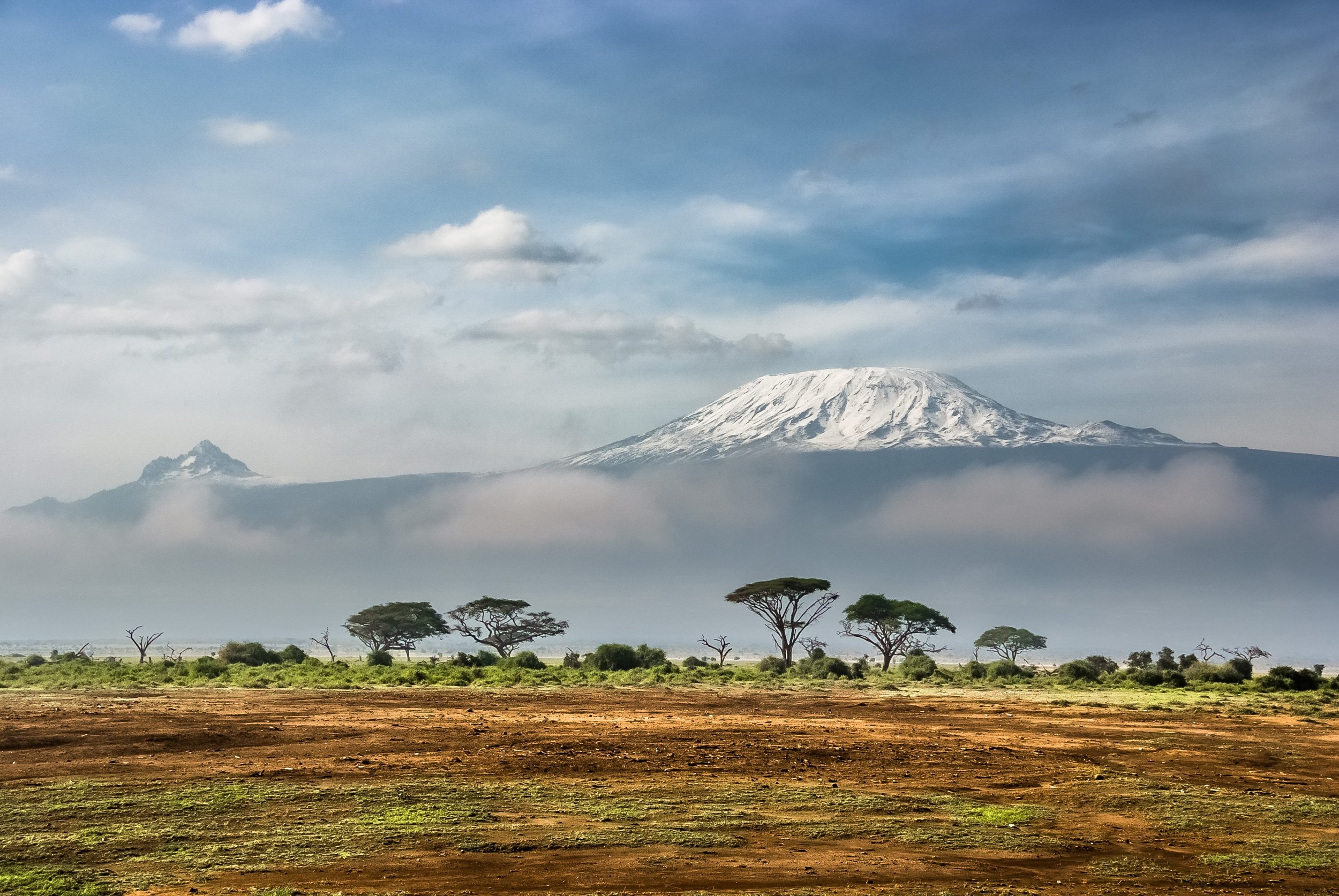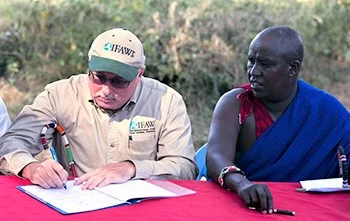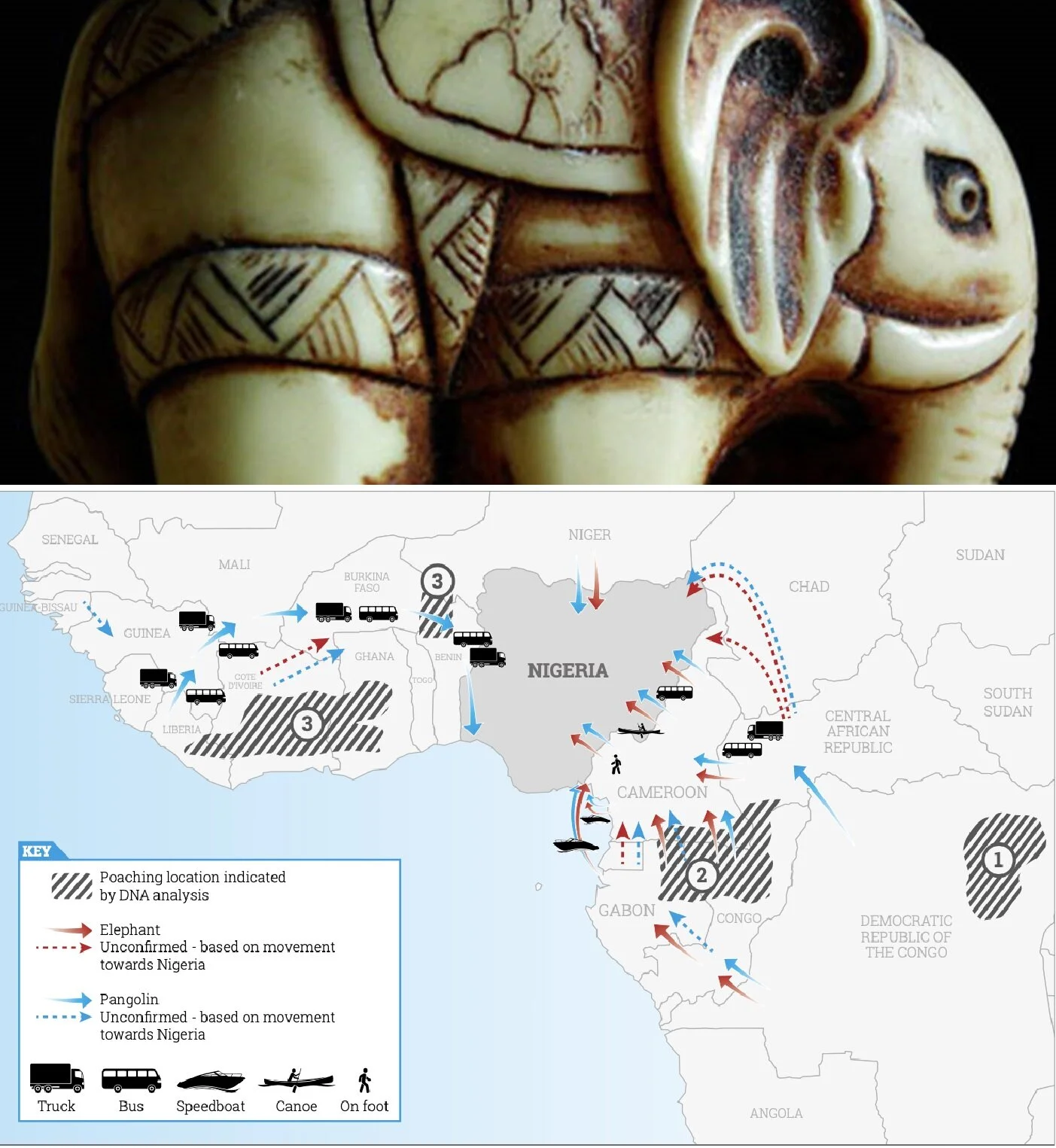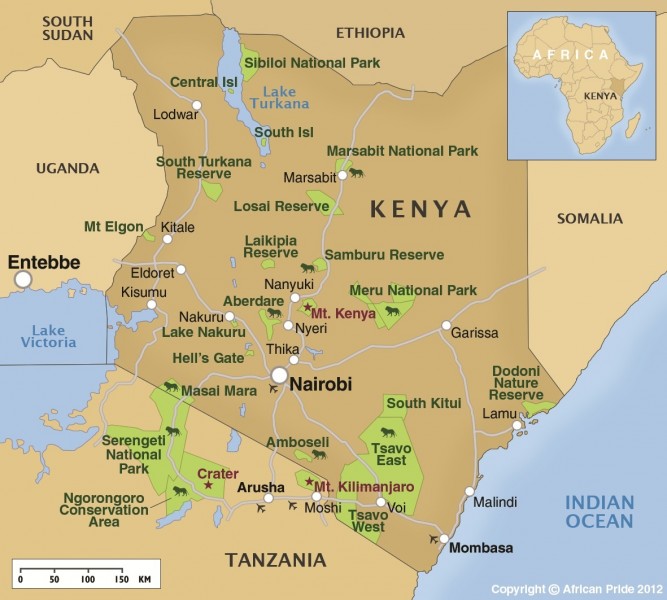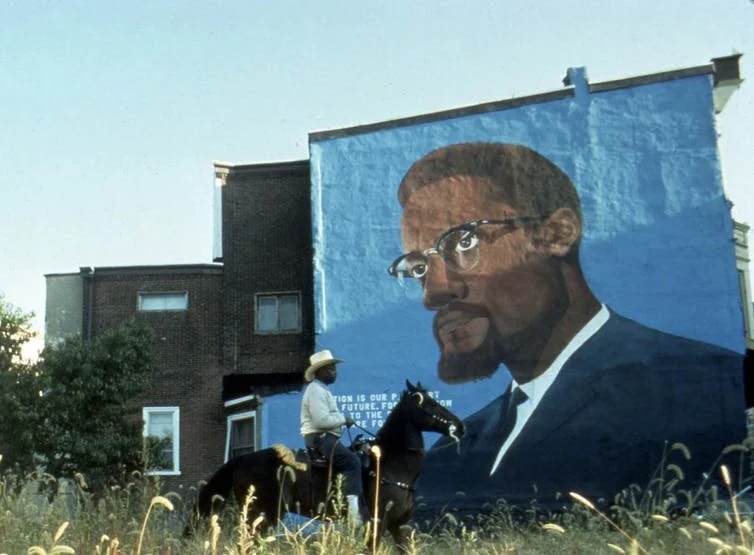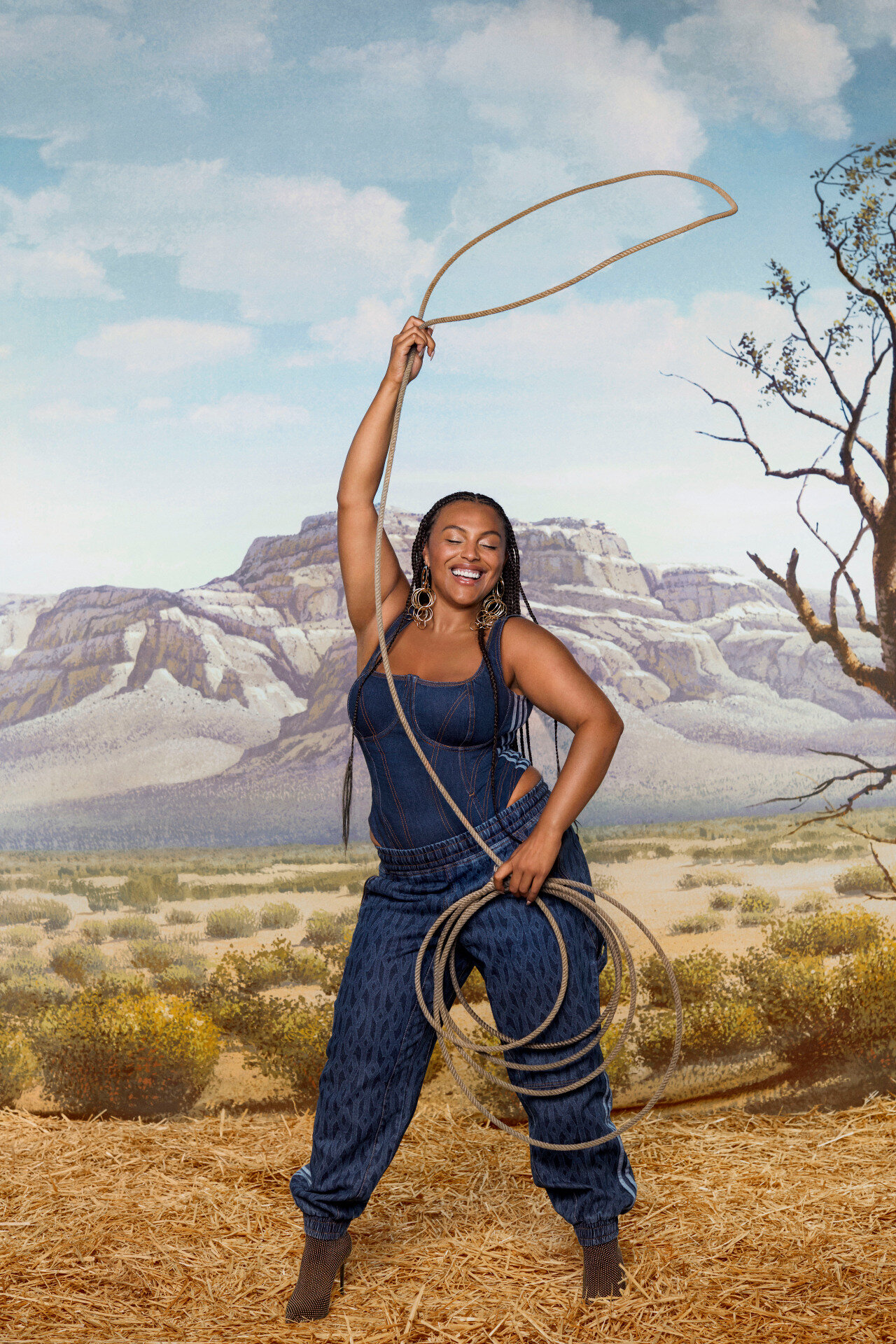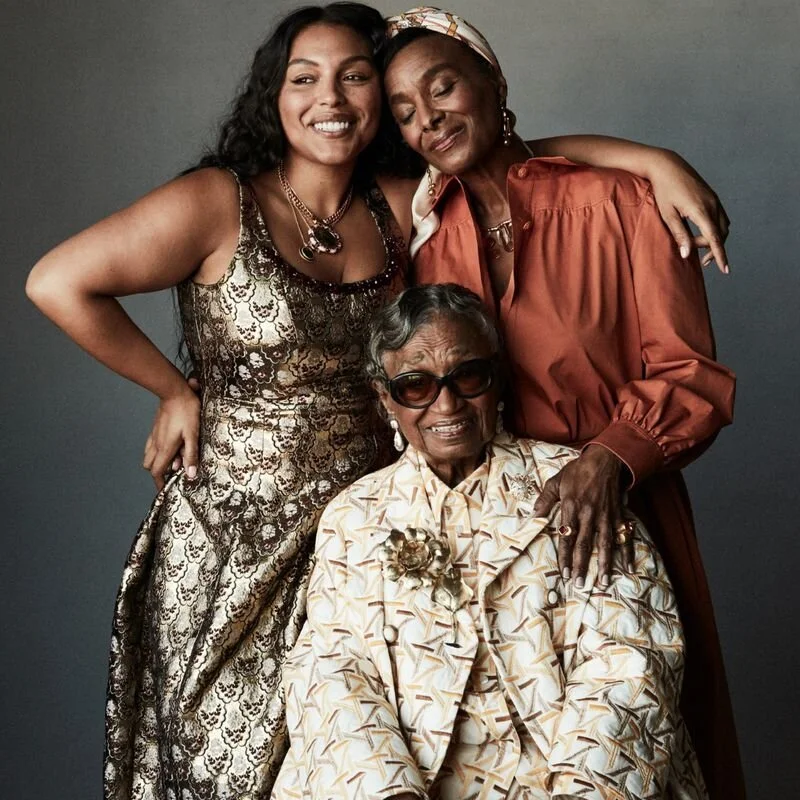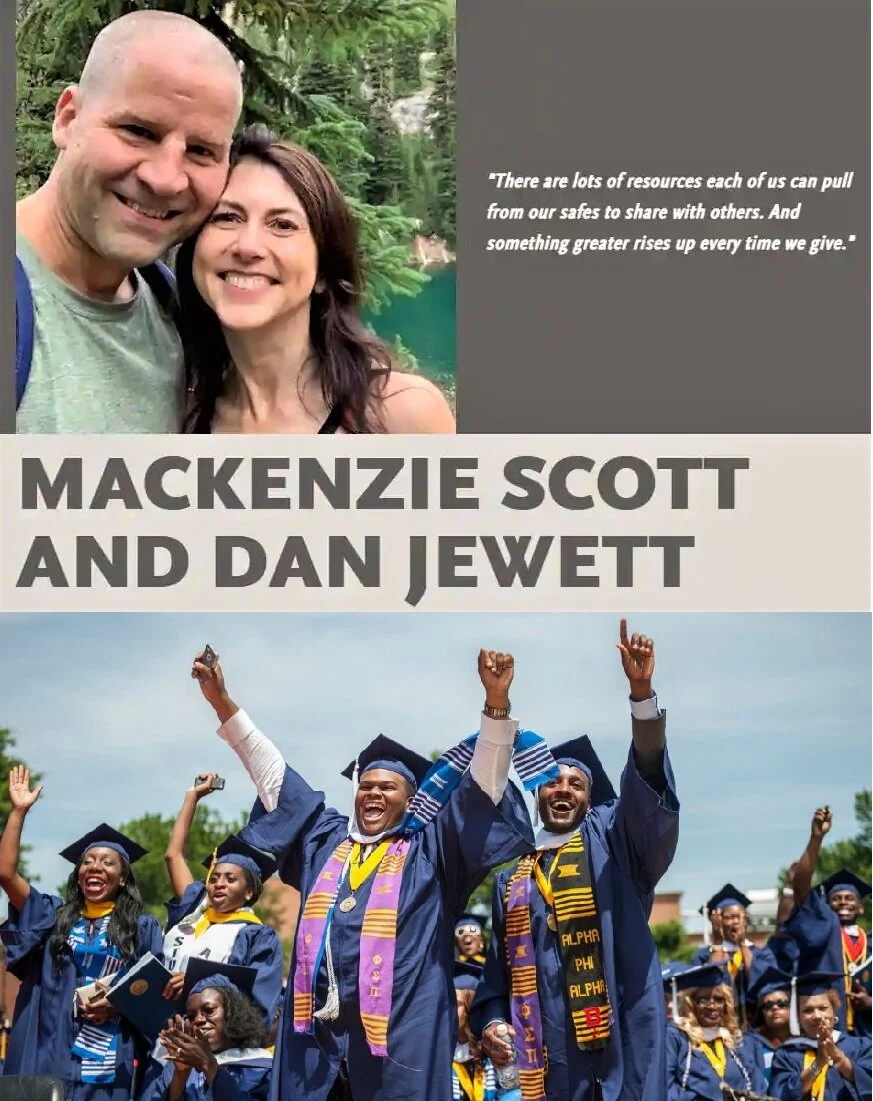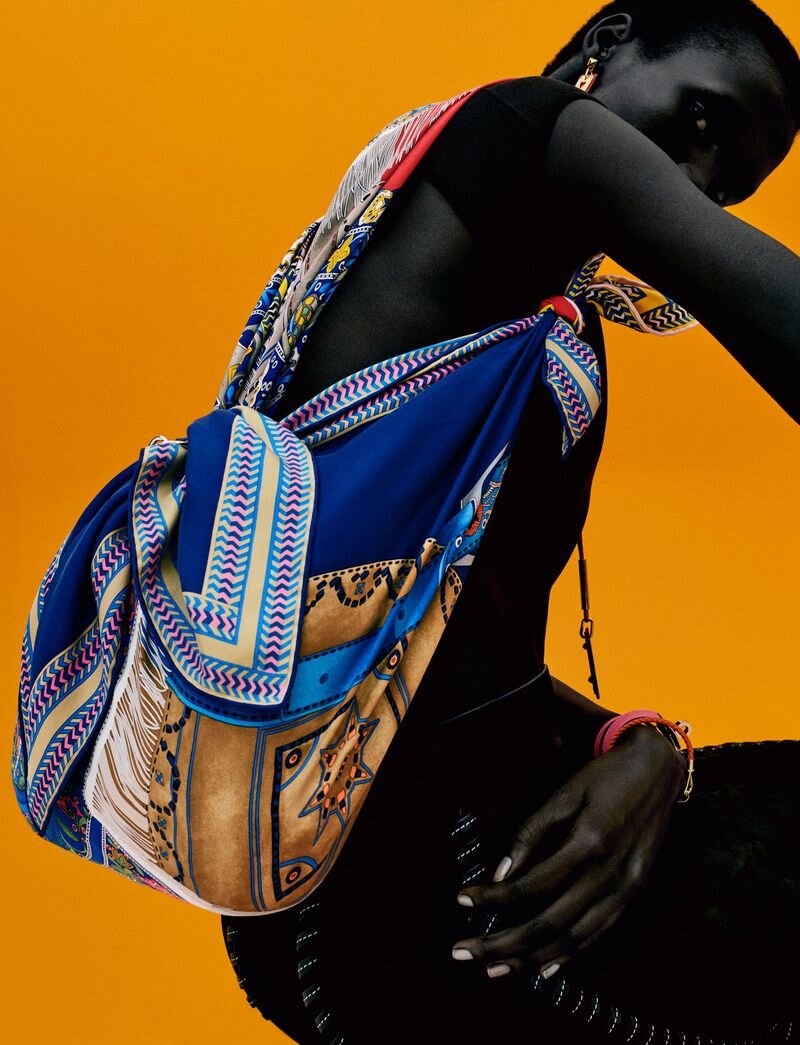Kenya's US Anti-Poaching Expert Faye Cuevas Announces 'Team Lioness', 8 Young Maasai Women Rangers + Plans For Many More
/View of Kilimanjaro from Amboseli National Park, Kenya, by Sergey Pesterev on Unsplash
Azzedine Downes, IFAW President (left) and Mr. Daniel Leturesh, representing the Masai community, sign the Kitenden corridor certificates after they signed a lease agreement, 17 July 2013, in Amboseli National Park in Kenya. © IFAW/K. Prinsloo
In July 2013, 1600 members of the Kitenden Corridor Conservation Area (of the larger Olgulului/Olalarashi Group Ranch (OOGR) located on the Tanzanian border of Kenya) leased 16,000 acres of land to the International Fund for Animal Welfare (AFAW). The signing ceremony between Azzedine Downes, IFAW President (left) and Mr. Daniel Leturesh, representing the Masai community, happened in a ceremony held in one of the world’s most spectacular sites, Kilimanjaro, the highest, freestanding mountain in Africa.
Mount Kilimanjaro stands in Tanzania, but just across the border from Kenya and Amboseli National Park. home in 2013 to 1,400 elephants and countless other wildlife species including lion, cheetah, leopard, buffalo, wildebeest, antelope, giraffe and an array of birds.
The dual visions of Amboseli and Kilimanjaro helped to define the spectacular vision of Africa, as another precious vision was in a state of genesis. The goal of this historic signing ceremony and lease was to insure that the land would be maintained as a critical corridor and dispersal area for elephants and other wildlife.
About four years later, after a period of leasing and confronting problems and issues associated with this grand scheme, on January 19, 2019 the Kitenden Conservancy Trust was registered with eight KCCA committee members at the helm as trustees. On 31 March 2017 “the promise that was made by the combined OOGR and KCCA committees came to pass when 36 members of committees and three IFAW field staff witnessed the “unveiling” of Kitenden Conservancy’s Registered Trust Deed by OOGR and IFAW lawyers.”
The signing turned Kitenden into a fully-fledged community-owned wildlife conservancy for use by Amboseli elephants and other wildlife, while improvingmthe welfare and livelihoods of its members through eco-tourism activities in the area.
Photo by Matthew Cramblett on Unsplash
Hey Faye!
We’re learning about this vital conservation project because I decided to check up on an American woman who inspires me greatly — Faye Cuevas, Esq. aka Lieutenant Colonel Faye Cuevas. Chief of Staff and Senior Vice President for the International Fund for Animal Welfare, the organization behind this ambitious conservation effort. Faye and her family could live in Washington, DC, but they do not. After conferring with her three young children, the quartet was ready for an the purposeful adventure of a lifetime.
This US military counterrorism expert is at the top of the pyramid of experts working with the Kenyan government to hunt down big game poachers, and especially elephant poachers.
Faye Cuevas, Esq. aka Lieutenant Colonel Faye Cuevas. Chief of Staff and Senior Vice President for the International Fund for Animal Welfare
We share a 2-minute video, a mere slice of the almost 10-minute PBS interview with Faye in Africa. Broadcast shortly after US president Trump reversed America’s ban on tropy hunting. Stunned by a deafening public outcry, Trump put the skids at least temporarily on his big idea to start killing big game again, presumably because his sons were eager to make front page news with big kills. Between his kids and the NRA, Trump never met an assault rifle that he didn’t want to hug.
Follow this link to watch the entire PBS episode, giving you the best interviews with Faye Cuevas I’ve seen. This woman is inspirational magic for our young people. In our 2-minute short below, Faye dons traditional Maasai dress and sits down with the women, who are clamoring to have more women represented in conservation efforts. The result is the actual article that got my attention in a last 30-days search on Faye. Watch the video and them meet Team Lioness.
One of Kenya’s first all-female ranger units, team Lioness protects 150,000 acres of community lands shared by both people and wildlife.
Team Lioness, a team of eight young Maasai women is one of Kenya’s first all-female ranger units — and the direct result of Faye’s consultations with the Masaii women leaders. Officially announced on March 6, 2019, Team Lioness joins the Olgulului Community Wildlife Rangers (OCWR) who protect wildlife across six bases and one mobile unit in OOGR through IFAW’s tenBoma, an innovative wildlife security initiative. Team Lioness is operating in this precious natural corridor created by Kenya and Tanzania under the majesty of Kilimanjaro.
“In the larger Amboseli region, out of almost 300 wildlife rangers, to my knowledge there was only one woman,” Faye explained, in introducing Team Lioness. “The need was apparent.”
The women of team Lioness were selected based on their academic achievements and physical strength, as well as their demonstration of trustworthiness, discipline, and integrity. Typically, a Maasai girl leaves school around age 10 and have few opportunities to achieve a higher education.
“It’s very rare that Maasai women achieve a secondary education,” says Cuevas. “But all of team Lioness have the equivalent of a US high school education, and none of them have had a paying job before this. It’s breaking barriers.”
“As the first women joining the OCWR Rangers, each of the team Lioness recruits brings a new perspective and a different experience with wildlife than her male counterparts,” Faye continues. “They are important voices in protecting wildlife and reconnecting communities to the benefits of sharing land with the magnificent big cats and other wildlife that call OOGR home.”
“For me, to be a part of team Lioness, it shows that women have an opportunity,” says Purity, a team Lioness ranger. “I’m gaining skills and knowledge on how to conserve and protect wild animals. I will go back to my community and tell them the importance [of conservation] and show them through my experience. You kill that lion, you kill your future.”
The presence of team Lioness has created a demand in some Maasai communities for more female leadership in conservation initiatives and calls for additional female rangers.
“News of team Lioness is really catching on in the Maasai community,” Cuevas says. “A Maasai woman elder from outside OOGR attended one of the recent community meetings and said, ‘I challenge us as a Maasai people that for every four rangers we hire, one of them is a woman.’ It’s really incredible. Getting the word out means we can continue to leverage tenBoma to enable rangers to act predictively to prevent harm to both wildlife and the communities that share land in the expansive OOGR.”
TenBoma — The Mothership
AOC has shared a lot of information in this blog post — lots of organizations and information about big game conservation on the Kenya-Tanzania border. TenBoma is Faye’s top level organization, developed alongside East Africa Regional Director James Isiche, as a system of integrated networks involving local and global communities united with one goal: to predict and prevent a poacher's next strike. Both Cuevas and Isiche speak to these community initiatives in the PBS videos, and they span out across Kenya. Today we are in one TenToma place in southern Kenya.
TenBoma, meaning ten houses, is inspired by an African community security philosophy that if ten houses look out for each other, the broader community is safer. Similarly, IFAW partners with local communities, governments and enforcement agencies like the Kenya Wildlife Service to create a coordinated system of eyes and ears that can monitor, predict and prevent poaching and other threats to wildlife.
Look in the southern part of the map to get your bearings. We close with this exquisite 30-minute long AFAW video ‘Vanishing Heritage: Protecting the Elephants of Amboseli. ‘ ~ Anne
